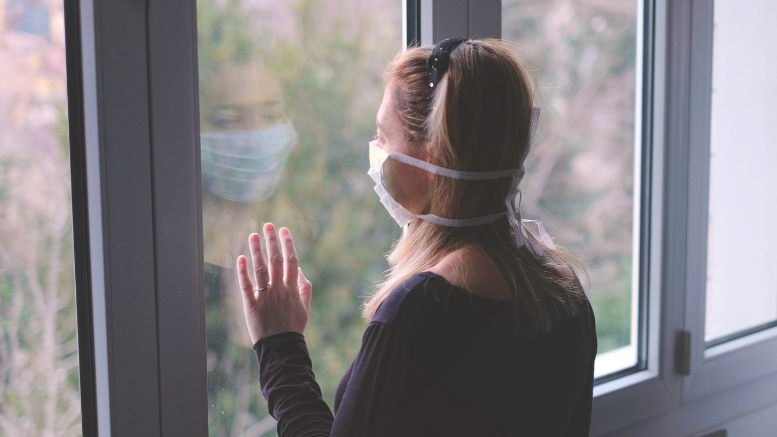Lockdown and the increase of domestic violence: Will the UK government’s response suffice?
Posted on 21 Jan 2021 by Ella Newman

Disclaimer: The views expressed below are that of the individual author.
Domestic violence is a serious social and public health issue prevalent in every society, whether reported by the victim or not. The severity of domestic abuse is evident worldwide, and the second wave of coronavirus has only sought to exacerbate this issue. The number of cases in the UK doubled throughout the first lockdown, again highlighting the extremity of this situation. This poses questions as to the safety of women and young girls, as well the difficulties these individuals face escaping these situations. However, it is important to acknowledge that women are not the solve victims with a minority of these cases affecting men.
Pre-lockdown, it was clear to see the efforts being made to combat this escalation as it became a more prominent issue on governmental agendas. In France, for example, a number of new measures were introduced including governmental action. This previously unprecedented action aimed to combat the issue of domestic violence. The government aimed to support victims throughout lockdown as well as encouraging victims to discreetly seek help at local medical clinics. In Italy, a new app was launched enabling victims to get support without a phone call. These provided model solutions for different governments to emulate by highlighting the concerning lack of attention given to this issue.
It would be unfair to say that the UK has not made any efforts in order to solve or mitigate this issue, but the effectiveness of the methods put in place are debatable. As highlighted in the Government’s Response to Domestic Abuse and Risk of Harm in the Covid-19 Pandemic, the government has made substantial financial efforts to supply different charities and organisations with funds to ensure that they are able to uphold the performance of their services.However, as evidential in the Women’s Aid Report, these funds were not adequate or sufficient in providing the desired support. This report states that many services have been forced to cease or withdraw support due to shortages in staff and inability for services to adapt to function remotely. One of the most worrying aspects of the government’s response which has only worsened this issue is the timing of their response. The Government’s response, as mentioned above, had not been published until three weeks into the initial lockdown, meaning that a lot of vulnerable people were left with a substantial time of fear and lack of support and thus only demonstrates the governments inadequacy to respond to this issue in an efficient manner.
The #YouAreNotAlone campaign which was set up by Priti Patel demonstrates another effort made by the UK Government. This campaign was set up to raise awareness and to encourage victims to seek the support that they need however has undergone some criticism. One of the main issues regarding this campaign was due to the campaign being monolingual (only written in English) meaning that women in certain communities were excluded from receiving support.
Another issue regarding this campaign was the reliance on social media. The use of social media in this campaign is pivotal to its functioning however further criticisms of the effectiveness of this have risen. For example, there have been questions as to whether raising awareness of this issue will suffice and whether more practical solutions will be necessary to provide long-term solutions. It is also necessary to highlight the lack of attention given to promoting this campaign in comparison to those with economic aspects, such as the Eat Out To Help Out or furlough scheme.
Despite the huge increase in cases of domestic abuse in the UK, there appears to have been a distinctlack in support or consideration of the issue in terms of the practical efforts being made. This was evident at the beginning of the initial lockdown and has only been heightened during the second lockdown. Despite governments efforts, this issue does not evidently appear to be afforded the same level of urgency as coronavirus, despite being described as a “shadow pandemic”. There are several issues arising from the government’s negligence of this subject: Is this demonstrative of an anti-feminist sentiment within central government? Or is the focus understandably being placed on rehabilitating an economy in turmoil? The furlough scheme and ‘Eat Out to Help Out’, reiterate this focus on economic rather than social stability. There is hope, however, that further measures will be employed by the government to alleviate harm caused to victims in future.
Tags:
united_kingdom
/
covid_19
/